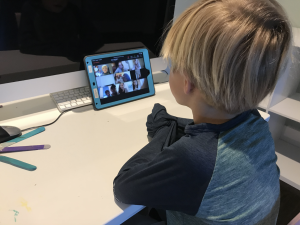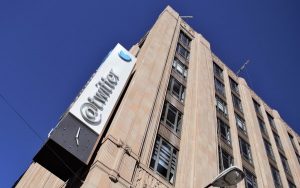
Market conditions, rising inflation, and worldwide uncertainty due to war and supply-chain issues are impacting businesses of all kinds and sizes. Some investors and boards are advising companies to cut costs and freeze hires, and some businesses have already started laying off large chunks of their staff. By the estimate of some experts, the U.S. economy is at risk of entering another recession.
But, as in all moments of change, opportunities exist: Some of the world’s most successful businesses saw their start during episodes of crisis, such as Airbnb and Uber (2007-2009 recession), or Microsoft (1973-1975 recession), among many others.
On this week’s Most Innovative Companies podcast, Joe Percoco, cofounder and co-CEO of Titan, shares his thoughts on why, while a financial crisis is undeniably a challenge to companies, it can also bring key opportunities for growth. His company, Titan, is a consumer fintech that lets users access to expert investment advice. Operating in that space means that Percoco has seen this crisis from the eye of the storm.
“Internally, we use weather analogies a lot,” Percoco says, comparing the financial landscape of the past few years to a sunny day. “It’s been 72 degrees, you’re on the beach, and anything you do is up and to the right. And now the weather has changed. It is rainy, cloudy, there are some thunderstorms. You can think of now almost as game-day for operators.”
Yet, despite the market conditions, Titan has done more than retain users. “If you take a look at us internally,” Percoco says, “we’re about to hit the highest level of output ever, right now, during a recession.” Since its founding in 2018, Titan has grown 6x year-over-year and now has almost $1 billion in assets under management. This is in large part due to the company’s innovation around not only opening access to investments, but also access to information around the financial markets and the decisions Titan makes when investing its user’s hard-earned money–which they’ve done throughout this market downturn.
Percoco also attributes Titan’s success to its ability to stick to the principles that made it successful in the first place. Particularly, those of thinking and building for the long-term, while staying in tune with the reality on the ground. “One of the main themes in our leadership team is how we get information, ensuring the traffic of information to our company, both in terms of market signals and what customers are enjoying, how they’re feeling, those need to be super clear runways for information to come through,” he says.
Drawing a comparison between businesses and a ship setting sail, Percoco says that, while there are limitations to what a company can achieve during a market downturn, there are also opportunities. He acknowledges that, while capital and resources are limited, businesses shouldn’t bloat their organization with headcount, and instead find ways to do more with less. “That means you have to take fewer at-bats,” he says. “From a process standpoint, focus becomes critical.” But, Percoco insists, “if you’re going to do something great, if you’re going to do something societal, you need, counter-intuitively, a disorienting event to build something transcendental.”
“It’s wise to ensure your ship is sturdy and that it can last through a storm,” Percoco says. “But, if you abandon your customers, abandon innovation, you’re abdicating an amazing opportunity to grow not only from a business standpoint, but from a mission standpoint as well.”
Listen to the episode to hear more from the interview.
You can listen and subscribe to Most Innovative Companies on Apple Podcasts, Stitcher, Spotify, or wherever you get your podcasts.
(18)
Report Post






